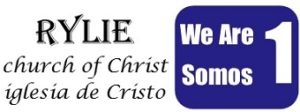Bulletin for 4-24-22
Birthdays and Anniversaries:
None this week
Prayer requests:
Dewey Prater, Dena’s father, pacemaker replacement Tuesday
Darlyne Stewart, Karl’s sister, her cancer seems to be under control for the moment.
Shirley Weeks, Steve’s mom, is not well.
Sharon Best, Steven’s mom, still recovering from surgery.
Sarah, Chris Girvin’s sister, on hospice care
Eleuterio Oviedo recovering from knee replacement surgery
Doris Coley, regular listener, also recovering from knee surgery.
Robert and Sue Waller, health issues.
Darla Nitti, Wendi’s mom, stage 4 kidney disease, stroke. New living situation!
Leta, has a recurring cancer, prayer request from her granddaughter via our website.
Tammy Jones, Weeks’ neighbor, kidney failure/dialysis
Article:
Two nameless prophets. One disturbing encounter. One powerful lesson.
Biblical narratives tell us what happened. They do not limit themselves to conveying what should have occurred.
As a result, it is not surprising to discover troubling details within some of these narratives. We can find ourselves asking, “why would he do that?” 1 Kings 13 contains such a story.
A nameless prophet from Judah, simply identified as “a man of God,” denounced the false worship at Bethel in Israel. After delivering God’s prophetic message he left Bethel to return to his home in Judah.
An old prophet who lived in Bethel chased after him. This old prophet invited the man of God to enter his house and eat with him.
The man of God responded that God had instructed him to neither eat nor drink in Israel. It is a good thing that Bethel was located just a handful of miles from Judah’s border!
The old prophet persisted by lying to the man of God. He claimed that the LORD had told him to invite the man of God to eat bread and drink water with him in his house.
Why would a prophet lie? Does this upset you as much as me? Yet he did.
The man of God faced a decision. Would he obey what he had heard from God or would he obey this new message delivered by an old prophet?
As we know the man of God chose to disobey the instructions he had received from God. He entered the house to eat and drink. Then, because he disobeyed what God had commanded him, a lion killed him on his way home. Rough ending!
When I reflect on this story, a deep realization and resolve grows within. What matters is what God has actually said. It does not matter what others might claim God has said. Likewise their opinions are not a reliable standard.
We would do ourselves a great disservice if we dismiss the value of examining the Scriptures for ourselves. Like the Bereans we need to ensure we are following God voice (Acts 17:11).
Barry Newton, link to original article
